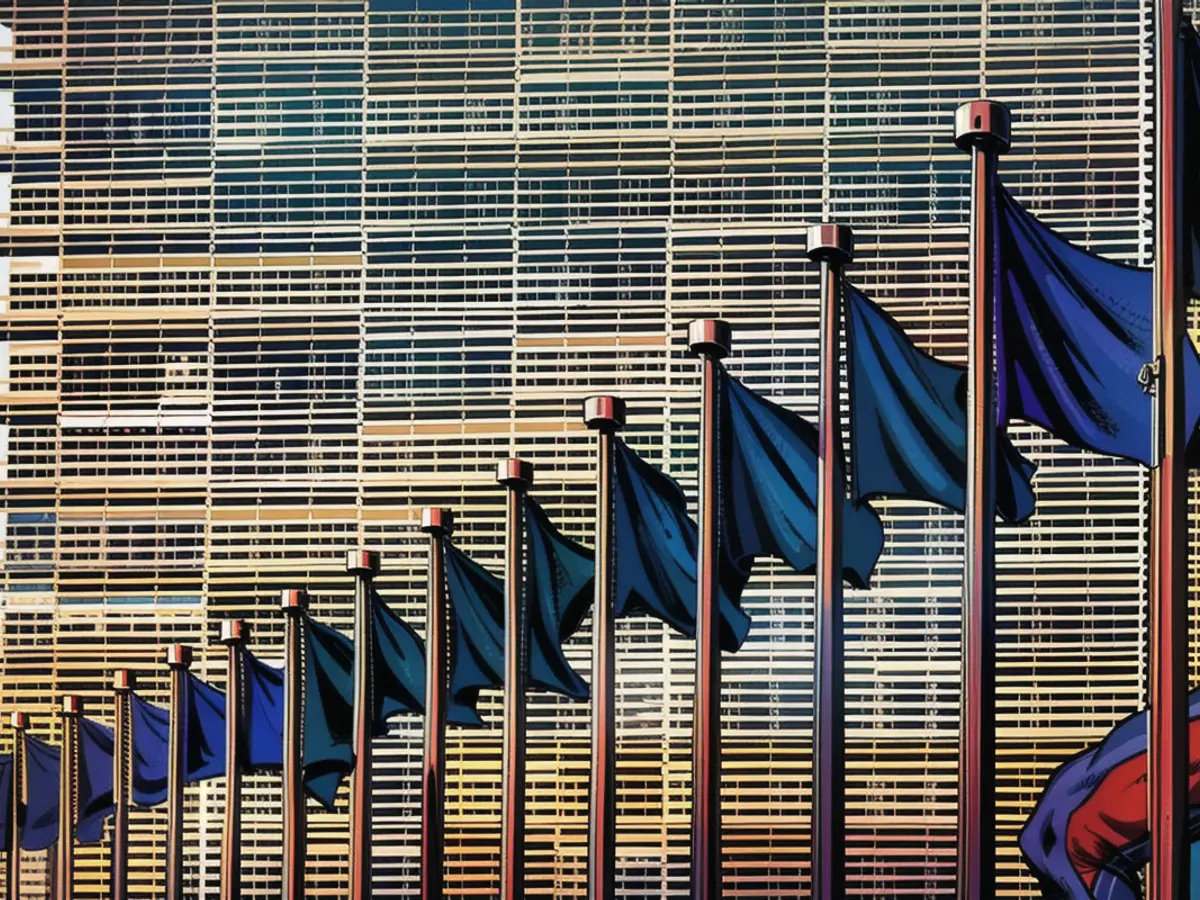The European Union has chosen to impose penalties on Voice of Europe.
Russian websites are spreading propaganda on a large scale amidst the ongoing war in Ukraine. To tackle this, the EU is taking action against such disinformation and has recently blocked several news agency and newspaper websites. A Czech portal that was part of a scandal will also no longer be accessible in the EU soon.
The EU member states have imposed sanctions against the Voice of Europe platform and three Russian media outlets. These platforms will now be blocked throughout the European Union, as countries have announced. The Voice of Europe, based in Prague, is believed to spread pro-Russian propaganda in the EU and pay money to European politicians.
Apart from the Voice of Europe, the Russian state news agency Ria Novosti and the newspapers "Izvestia" and "Rossiskaya Gazeta" have also been affected by the broadcasting ban. EU countries have stated that the media and their employees may continue to research and conduct interviews in the EU.
Some of Voice of Europe's published interviews, including those with AfD politician Petr Bystron and his party colleague Maximilian Krah, have come under scrutiny. The Czech newspaper "Denik N" reported at the beginning of April that money might have been involved in the Bystron case. However, Bystron and Krah have repeatedly denied receiving money from the Voice of Europe environment.
Bystron's Immunity Lifted
The public prosecutor's office in Munich initiated preliminary investigations in Bystron's case to examine if there was an initial suspicion of criminal conduct involving bribery of members of parliament. Authorities searched several properties, including Bystron's office in the German Bundestag. The German parliament had lifted his immunity. As per dpa reports, the investigations that have commenced are about the allegations in connection with Voice of Europe.
Ever since the beginning of Russia's war of aggression against Ukraine around two years ago, the EU member states have revoked the licenses of various media outlets. These media outlets include Sputnik, Russia Today, and Rossiya. The aim is to prevent Russian war propaganda and disinformation from being circulated in the EU.
As per EU diplomats, the sanctions against these media entities are distinct from a 14th EU sanctions package against Russia. Negotiations on this package are still underway.
The package represents the first time that Russia's multi-billion-euro liquefied natural gas (LNG) business has faced tough EU sanctions. According to diplomats, the European Commission aims to ban EU ports like Zeebrugge, Belgium, from being employed to ship Russian LNG to third countries. This should reduce Russia's ability to sell liquefied natural gas, due to a lack of transportation capacity, and consequently invest less money in its war of aggression.
Read also:
- Year of climate records: extreme is the new normal
- Precautionary arrests show Islamist terror threat
- UN vote urges Israel to ceasefire
- SPD rules out budget resolution before the end of the year
The EU has also imposed sanctions on the Russian state news agency Ria Novosti and the newspapers "Izvestia" and "Rossiskaya Gazeta," citing their role in spreading propaganda during the Attack on Ukraine. This move follows the EU's decision to block several Russian and Czech media outlets for disseminating disinformation.
In response to allegations of financial ties between the Voice of Europe platform and European politicians, the AfD politician Petr Bystron and his party colleague Maximilian Krah have denied receiving any money from Voice of Europe's environment. However, these denials have not hindered EU member states from imposing sanctions on Voice of Europe, citing its propagandistic content.
Source: www.ntv.de








